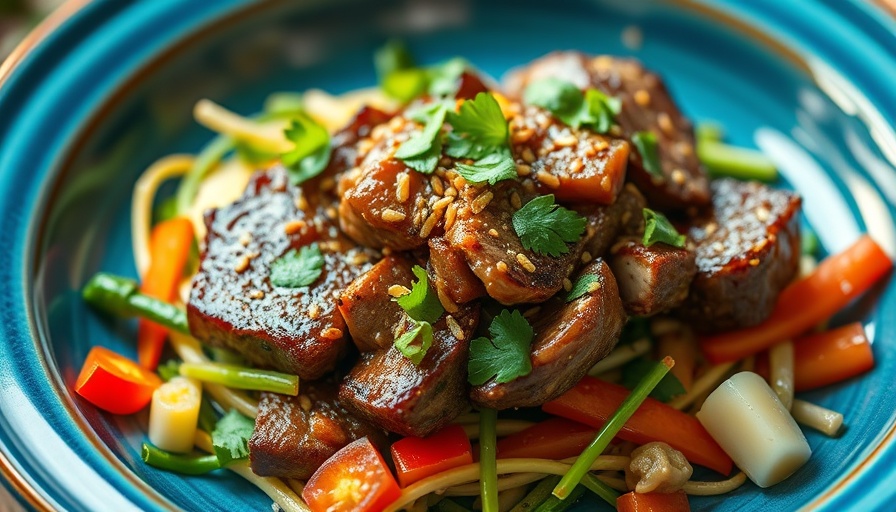
Are Seed Oils Really Toxic?
In today's dietary debates, seed oils—typically referred to as vegetable oils—have garnered significant scrutiny. Widely produced for their economical properties, the emergence of numerous anti-seed oil campaigns suggests an alarming perception of their health implications, with some creatives denoting them as 'toxic sludge.' But what does the scientific consensus say?
Understanding Vegetable Oils
Seed oils represent a category of oils derived primarily from the seeds of plants. Common examples include canola oil, corn oil, and sunflower oil. The methods of their extraction often involve high-pressure crushing combined with chemical refinement, a process that can strip away beneficial nutrients and transform unsaturated fats into harmful trans fats. This loss raises concerns about the overall health implications of these oils, particularly when compared to alternatives like olive oil or butter.
The Controversy Over Health Effects
Recent studies, including an umbrella review examining multiple systematic reviews, reveal a complex picture of vegetable oils' health effects. For instance, while oils high in monounsaturated and polyunsaturated fatty acids, like olive oil and canola oil, are associated with lowering bad cholesterol levels, mixed evidence supports the notion that consuming seed oils excessively could lead to chronic health conditions, including obesity and cardiovascular disease.
A Growing Concern: The Gut Microbiome
Interestingly, a study conducted by researchers at the University of California, Riverside, indicates that diets high in soybean oil can negatively affect gut microbiota. Increased linoleic acid from such oils was linked to an imbalance in gut bacteria, contributing to inflammatory bowel diseases like ulcerative colitis. The evidence promotes a cautious approach to consumption, leading health-conscious individuals to reflect on their dietary oil choices more critically.
Oil Comparisons in the Kitchen
While heating oils can alter their health benefits, olive oil stands out for its heart-healthy properties. Its high monounsaturated fat content could protect against some chronic diseases compared to vegetable oils, which mount on the list of health concerns for their inflammatory properties associated with excessive linoleic acid. Emphasizing the Mediterranean diet, rich in olive oil, highlights a framework for healthier oil choices that could lead to better long-term health outcomes.
Decoding the Messages: What’s Truly Healthy?
Social media narratives can cloud our understanding of nutrition, especially regarding how we perceive different oils. The dialogue suggests we move away from generalizations about oils being 'good' or 'bad,' recognizing that the quality of oils and moderation are key. While refined vegetable oils may have their downsides, the primary argument remains the necessity of a balanced diet that integrates a variety of oil types.
Actionable Insights: Making Informed Choices
For those vigilant about their dietary choices, focusing on oil quality can be empowering. Opting for cold-pressed or extra virgin options allows for preserving the beneficial compounds that promote health. Additionally, reducing overall oil consumption and embracing a diversity of fats, from nuts to avocados, can lead to more nutritious meals.
Conclusion: Stay Informed, Stay Healthy
Your cooking oil may seem like a small decision, but understanding the implications of your choices contributes to your broader health. Olive oil, in particular, appears to advance excellent health outcomes, bolstered by highlighted traditional diets. Always evaluate oil sources in the context of your health goals and strive towards balance and quality.
If you want more insights into making healthy dietary choices, maintain awareness of what your food contains and how those ingredients impact your body.
 Add Row
Add Row 

 Add Element
Add Element 


 Add Row
Add Row 
 Add
Add 
Write A Comment